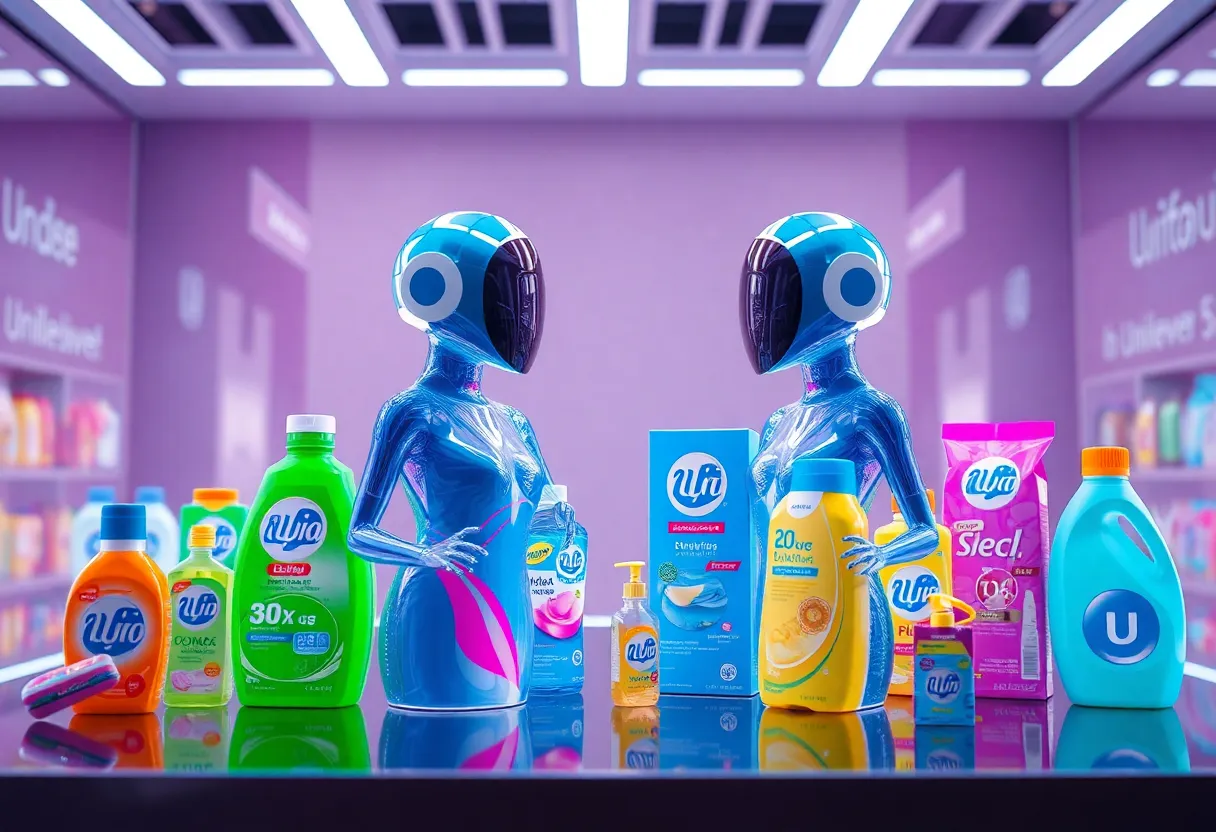News Summary
Unilever is revolutionizing its marketing approach by utilizing Nvidia’s Omniverse platform to create digital twins of its products. This innovation allows for highly detailed 3D replicas, streamlining marketing processes and increasing efficiency. The beauty and well-being segment has reportedly seen significant cost savings and faster content creation. As Unilever integrates AI, they remain committed to ethical considerations, ensuring that their brand values are upheld throughout this transformation.
Unilever’s Innovative Leap into Digital Marketing with Nvidia’s Omniverse
In a big move towards the future of marketing, Unilever is embracing the exciting capabilities of Nvidia’s Omniverse platform to create something they call “digital twins.” This isn’t just tech jargon; it’s a fresh approach that could change how products are marketed!
What are Digital Twins?
So, what exactly are these digital twins? Think of them as highly detailed 3D replicas of Unilever’s products. These replicas capture everything from the different product variants to packaging designs and labeling, all packaged neatly into a single file, which Unilever refers to as a “single digital truth.” This creative solution streamlines the marketing process by making it easier to adapt and present products across various channels.
Efficiency at Its Best
The primary goal behind this initiative is not only to save costs but also to cut down on the time it takes to market products. By utilizing these digital twins, Unilever’s marketing teams can generate product imagery and content much quicker than before. This means less time spent on repetitive tasks and more room for creative thinking!
Bracey, a spokesperson from Unilever, shed some light on this transformation, stating that it has truly simplified processes that once seemed complicated. Teams can now focus on thinking bigger and bringing more creativity to their projects. It’s turning the marketing game on its head!
Beauty & Well-Being – The First to Pilot
Interestingly, Unilever chose to kick off this adventurous journey with its beauty and well-being segment, which has already seen some promising outcomes. With the integration of this AI technology, they’ve reported a 55% increase in cost savings and a stunning 65% faster turnaround in content creation. Some beauty brands even noted a notable uptick in consumer purchase intent following these enhancements.
Ethical Considerations in AI
However, Unilever isn’t diving headfirst into AI without caution. They are committed to ensuring that their brand values are upheld. For instance, they’ve stated that their well-loved Dove brand will not use AI models to replace real women in advertisements. This shows their dedication to the “Real Beauty” platform and their commitment to authenticity.
Future Marketing Directions
With new CEO Fernando Fernandez at the helm, the company is also preparing to shift 50% of its marketing budget toward social media platforms. Additionally, there is a plan to expand collaborations with influencers. This is pretty exciting, given that competition in the Consumer Packaged Goods (CPG) sector is heating up, especially with Procter & Gamble recently outpacing Unilever on performance metrics.
The Larger Picture of AI in CPG
As Unilever continues to weave AI into its marketing fabric, hundreds of AI applications are being utilized across their strategies. This trend isn’t just limited to Unilever; it reflects a larger movement among CPG companies keen to harness generative AI technologies for improved brand relevance and consumer engagement.
A recent survey by McKinsey pointed out that while a whopping 71% of CPG leaders have adopted AI, there’s still a significant gap in fully unleashing the potential of generative AI compared to other sectors. This represents a vast opportunity that many are yet to explore!
Anticipating Consumer Needs
It’s clear that integrating AI into marketing strategies helps CPG companies not only anticipate consumer needs but also enhances customer engagement through insightful data. With today’s market relying less on third-party data, the use of first-party data could be pivotal. Stakeholders are realizing that a strategic application of generative AI could lead to sustainable growth and a stronger market position.
In summary, Unilever’s journey into the world of digital twins and AI gives us a glimpse into the future of marketing. It’s about becoming more adaptable, creative, and efficient while staying true to what makes brands resonate with consumers. The landscape is evolving, and it’s a thrilling time to witness how it unfolds!
Deeper Dive: News & Info About This Topic
HERE Resources
Unilever Embraces AI and Digital Innovation for Smarter Marketing
Exciting New Innovations from Matterport: Introducing the Marketing Cloud!
Hyper-Personalized Ads: A New Era in Digital Marketing
Additional Resources
- Marketing Dive: Unilever AI Marketing Bets
- Bain & Company: Consumer Products Report 2025
- AWS: Mastering Direct-to-Consumer Marketing
- Wikipedia: Artificial Intelligence in Marketing
- Food Institute: AI Inspires Marketing Hyper-Personalization
- Google Search: Artificial Intelligence in CPG Marketing
- McKinsey: The Real Value of Digital and AI Transformation in CPG
- Encyclopedia Britannica: Consumer Packaged Goods








